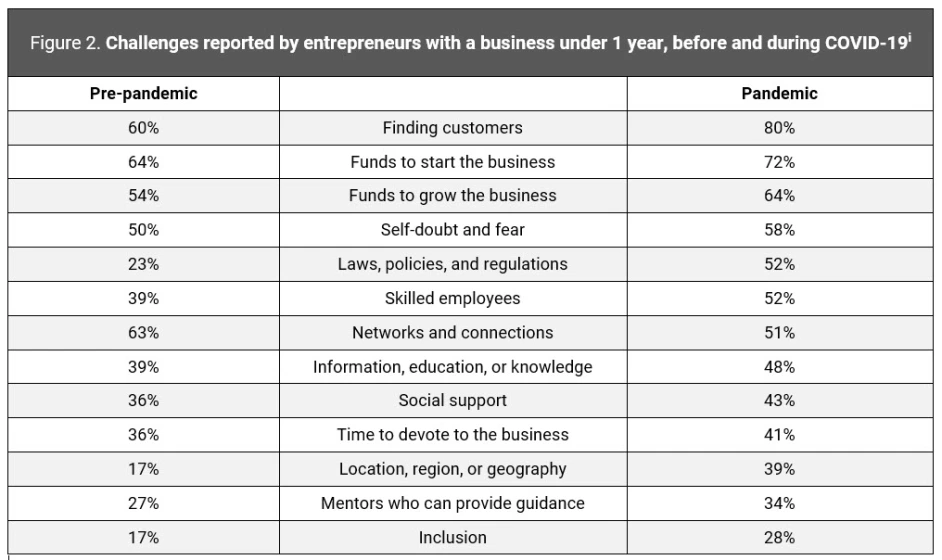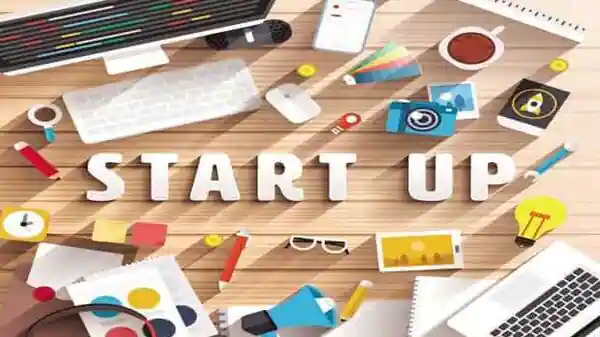In the OECD economies, start-ups play an important role, but the crisis of COVID-19 reduces creation, challenging survival, and restricting growth. Business registrations have declined dramatically in recent months and a lack of new companies has major consequences, especially for jobs, for economic performance. This column argues that these can be minimized by taking initiatives to promote existing start-ups and the development of new companies. Policymakers must resolve short-term problems and promote short-term liquidity and financing access, as well as to encourage start-ups’ ability to leverage new market opportunities. Policies aimed at reducing barriers to entrepreneurship, facilitate start-ups, and foster entrepreneurship will contribute to accelerating recovery and sustaining aggregate jobs over time. Established as major drivers of economic growth and job development, start-ups are also a catalyst for radical innovation. Young companies constitute approximately 20% of the workers but generate on average nearly half the workers of young companies in countries in the OECD, and creative businesses make an important contribution to combined productivity growth.

During the COVID 19 crisis, start-ups played an important role in economies. Some creative young companies responded rapidly and flexibly to the pandemic and were crucial in helping several different countries to move towards completely digital work, education, and medical services. Recently for the OECD COVID-19 hub, we examine the obstacles faced by start-ups and the potential for outbreaks in and after COVID-19. The crisis reduces start-up creation, challenges its survival, and restricts its growth. A missing new company generation has significant consequences for economic outcomes, particularly jobs, given the unreasonable contribution of start-ups to job growth – which is mitigable through support for existing start-ups and new business formation. Policymakers need to overcome short-term challenges and also, and particularly, promote start-ups to leverage new business opportunities, reduce entrepreneurial obstacles, provide sufficient incentives, and improve their potential entrepreneurial.

Due to the COVID-19 crisis, most of the current start-ups are more fragile than the previous ones because of the shock triggered by the pandemic. Compared to other small and medium-sized companies (SMEs), they prefer to participate in high-risk operations, face limits on the access of conventional finance, and have formative links with suppliers and consumers. They quite often rely crucially on a small founding team, which may make them more vulnerable to pandemic labor shocks. At a period marked by serious economic instability and containment measures and a drastic decline in demand impacting their sales, start-ups become much more financially vulnerable and require short-term liquidity help that is the critic for their survival.
read more : How social media functions in the growth of business in 2023
Political responses to protect the economy against the crisis in many countries already target the financial fragilities of businesses, especially for small and medium-sized enterprises. This includes short-term liquidity support mechanisms such as credit guarantees, consumer lending, discounts, and discounts. The basic characteristics of start-ups with regard to other SMEs should nevertheless be taken into account in policy responses. In some countries, policies based more especially on start-ups were implemented. US, for instance, has set up a $4 billion fund to help start-up fluids, including the bridge between start-up funding rounds, has announced a targeted program for start-up help, and expands and promote venture capital finance.

Tackle short-term challenges to speed up the recovery in start-ups
Meet the short-term funding needs of existing start-ups with minimal bureaucracy (i.e. loan guarantees, direct loans, subventions, or subsidies) and help protect their employees’ employment and incomes.
Sensitizing existing measures and support initiatives that help start-ups respond to COVID crisis (for example through official channels centralizing support programs; advice on cash flow management; best practices on remote communications between investors, etc.).
Foster research and development and radical breakthrough awards to help deal with health problems and encourage the adaptation of their goods by start-ups.
Promote development in skills and training materials, mainly during the recession, to prevent depreciation of skills and to promote the growth of start-up staff.
Reduce the administrative burden of start-ups through the introduction of streamlined processes and facilitate e-government transitions. Reduce regulatory uncertainty during the crisis as start-ups suffer the most from such uncertainties, (for example bureaucracy), but even after (for example health and safety regulations in the early recovery phase).
Reduce potential barriers to entrepreneurship, especially those particularly important during and after a pandemic (for example, access to health insurance and paid sick leave), and make social security more portable. This means that the rights of people rather than employees are related.
Ensure that funding is available in collaboration with private actors for creative start-ups in all stages of their growth. For instance, the public venture capital fund may be provided with additional public financing for private investors in co-investment with start-up rounds, the defaulting fund investors may take shares with additional public funds, or venture capital funding.
In addition to the challenges mentioned above, start-ups have also faced difficulties in maintaining their existing customer base and acquiring new customers. With people staying at home and reducing their spending, start-ups have had to find creative ways to reach customers and build brand awareness.
Moreover, the pandemic has forced start-ups to reconsider their marketing and advertising strategies. Traditional methods of marketing, such as events and trade shows, have been cancelled or postponed, and businesses have had to shift to online marketing to reach their target audience.
Another challenge that start-ups have faced is employee retention. With the economic impact of the pandemic, many companies have had to lay off employees or implement pay cuts, which has made it difficult to retain top talent. Additionally, remote work has made it harder to maintain company culture and keep employees engaged.
Furthermore, start-ups that are focused on developing physical products have faced significant hurdles during the pandemic, such as delays in product testing and manufacturing. With lockdowns and social distancing measures in place, it has been difficult to coordinate with suppliers and ensure that products are being manufactured according to specifications.
Despite these challenges, some start-ups have been able to thrive during the pandemic by pivoting their business models and adapting to changing market conditions. For example, some companies have shifted from in-person services to online offerings, such as virtual fitness classes or telemedicine consultations. Others have developed new products to meet the needs of customers during the pandemic, such as home office equipment or COVID-19 testing kits.
In summary, the COVID-19 pandemic has presented numerous challenges for start-ups, including funding, supply chain disruptions, remote work, reduced demand, uncertainty, customer acquisition, marketing, employee retention, and product development. However, with innovation and resilience, many start-ups have been able to overcome these challenges and find new opportunities for growth.

